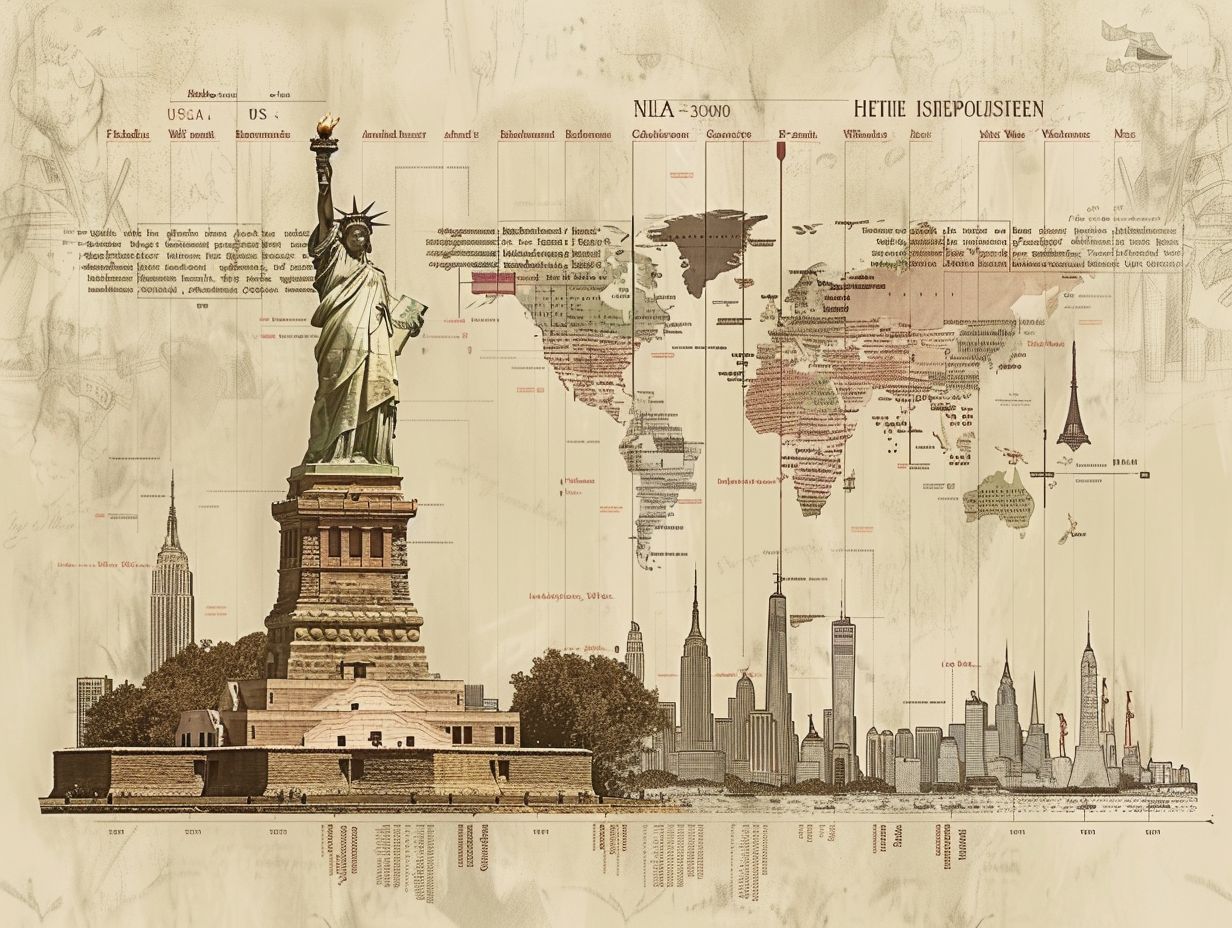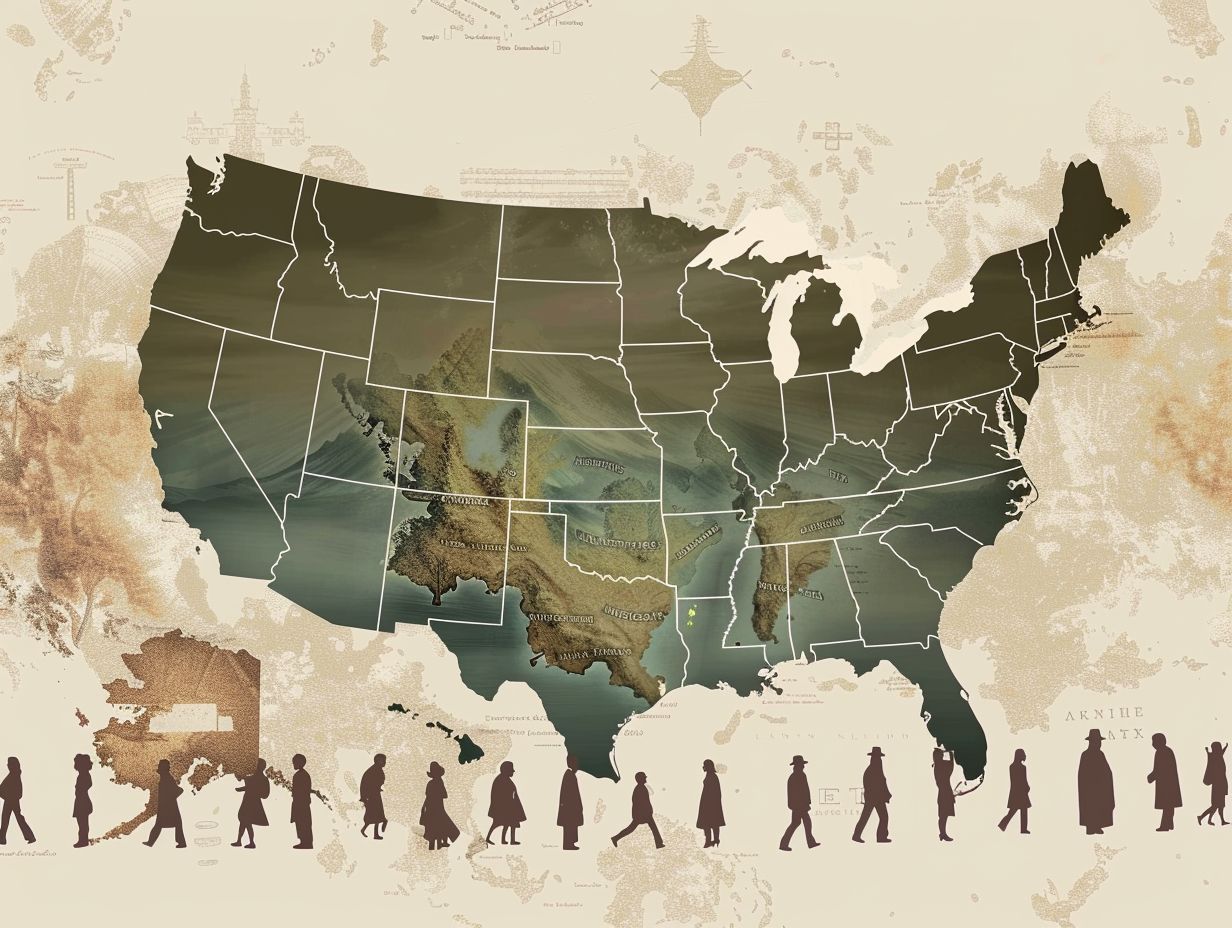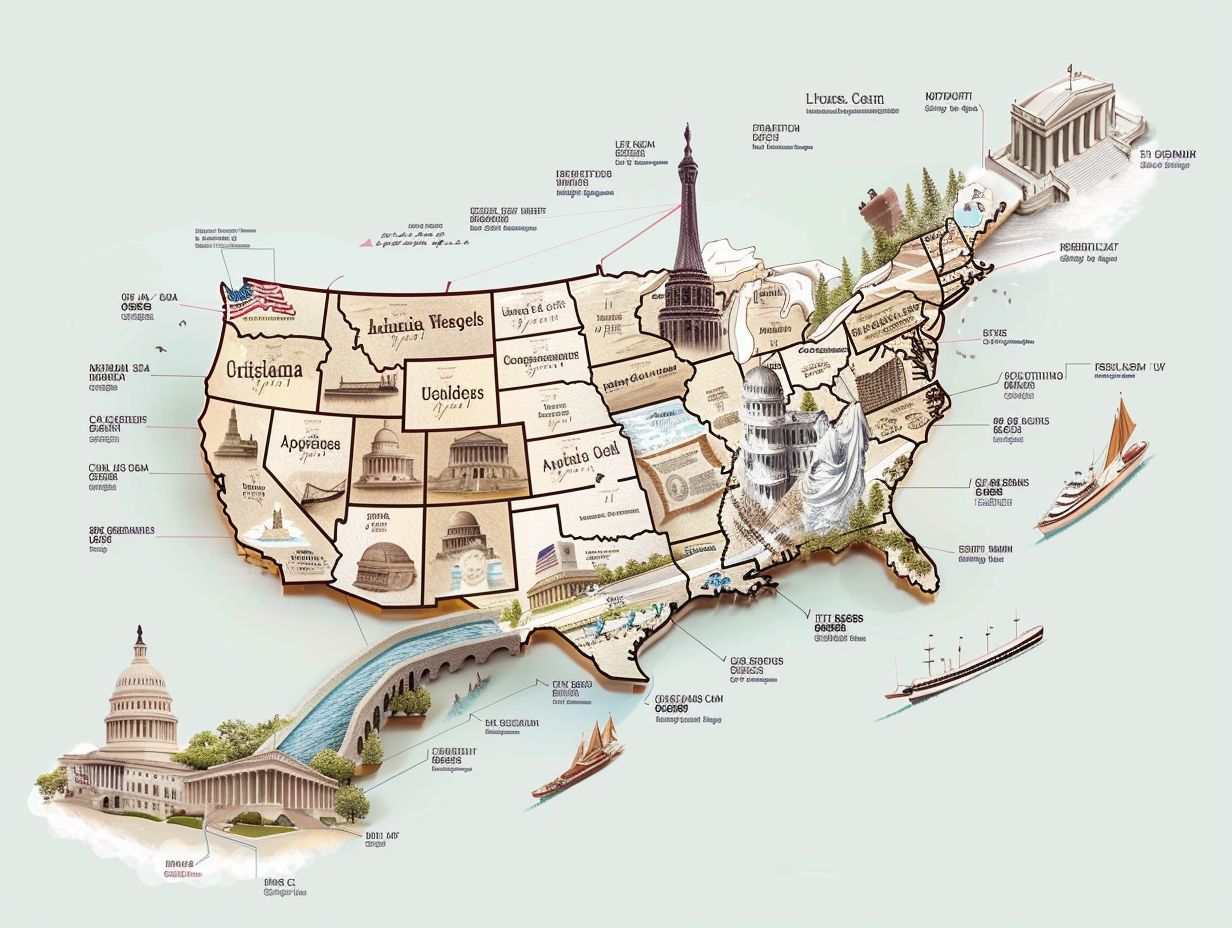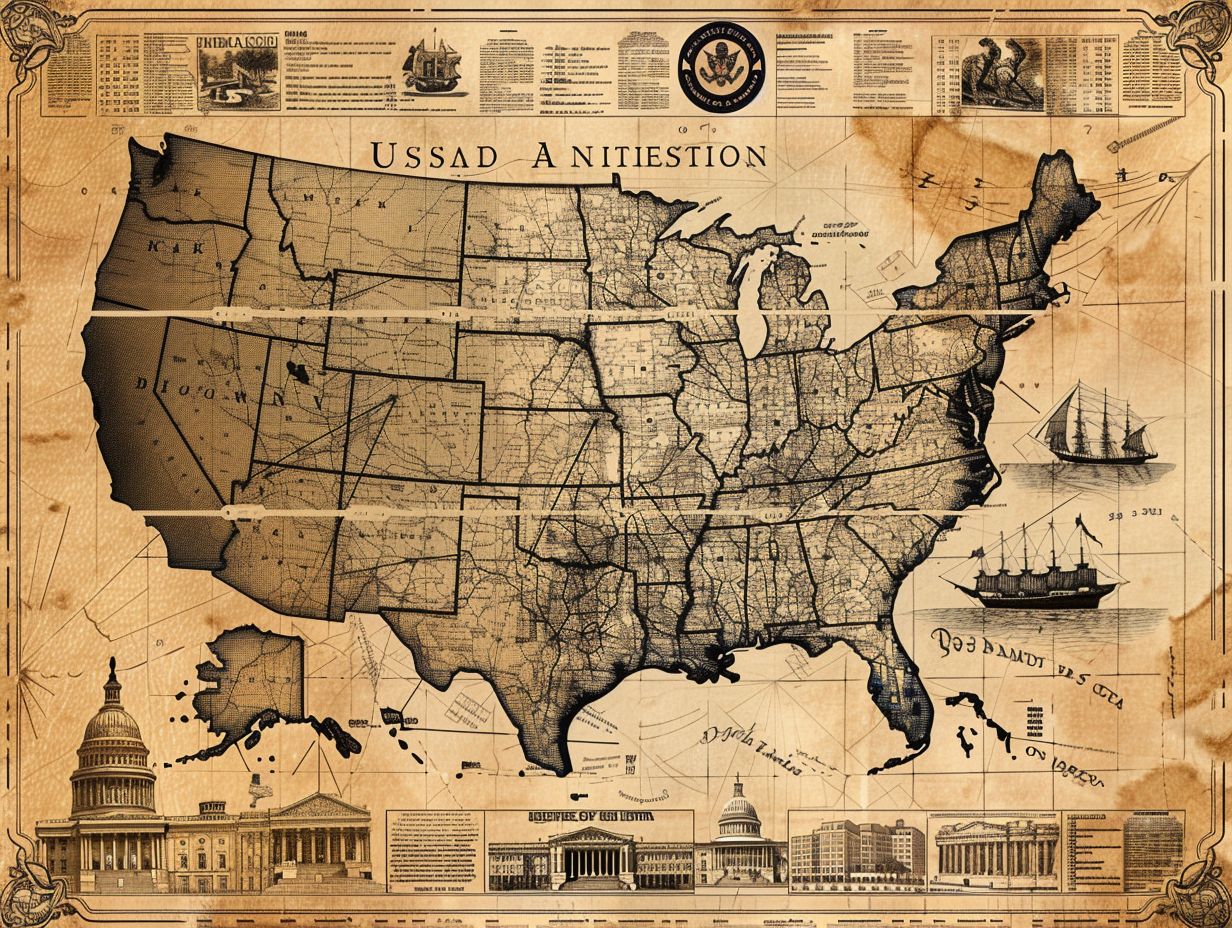The United States immigration system has gone through some major changes in recent years, affecting immigrants and immigration processes in various ways.
If you’re curious about what’s been going on, this article will walk you through the key changes in US immigration laws and how they’ve impacted different types of immigrants. We’ll also dive into the challenges and controversies surrounding these changes.
You’ll get a chance to explore the arguments both for and against these reforms and get a peek into what the future might hold for US immigration laws.
So, come along as we navigate the intricate world of US immigration policies together.
Overview of the US Immigration System

In the United States, you’re dealing with a pretty complicated immigration system. It’s like this big web of laws, rules, and processes that decide who can come in, stay, or become a citizen. Whether it’s visa stuff, green cards, becoming a citizen, or seeking asylum, this system controls legal and illegal immigration and impacts millions of folks each year.
Here’s the deal: the Department of Homeland Security (DHS) is like the big boss when it comes to making sure these immigration laws are followed. They’re in charge of agencies like Immigration and Customs Enforcement (ICE) and Customs and Border Protection (CBP).
In terms of immigration courts, they’re under the Department of Justice and handle cases for folks facing deportation or seeking asylum. There are all sorts of visa categories, like family-based, employment-based, and diversity visas.
If you want to become a U.S. citizen, that’s called naturalization. You’ve got to meet certain requirements, pass tests, and take the Oath of Allegiance. If someone’s not playing by the rules, Immigration and Customs Enforcement (ICE) steps in with deportation procedures.
Recent Changes in US Immigration Laws
Recent changes in US immigration laws have introduced significant policy updates and legal reforms that impact various aspects of immigration. These changes stem from executive orders, bipartisan legislation, and shifts in enforcement measures, affecting visa regulations, border security, and the citizenship process.
Key Changes and Implications
Key changes in US immigration policies have brought significant implications for you and your immigration journey. These updates include stricter visa requirements, enhanced border security measures, and revised asylum policies, all of which have far-reaching consequences.
The stricter visa requirements have upped the difficulty level for you when it comes to obtaining visas for work, study, or family reunification purposes. The heightened border security measures mean that there’s now more intense scrutiny on your legal and unauthorized border crossings. The revised asylum policies have resulted in longer processing times for asylum claims, impacting the lives of many individuals seeking refuge in the US. Overall, these changes have been felt across immigrant communities, creating uncertainty and obstacles for you as you navigate the immigration system.
Impact on Immigrants and Immigration Processes
With the recent changes in US immigration laws, you might have noticed some big shifts in how things work for immigrants and the different immigration processes. Whether it’s changes in visa categories, work permit rules, or adjustments in the citizenship process, these updates have really shaken things up in the world of immigration in the United States.
Effects on Different Types of Immigrants

Recent changes in immigration laws have different effects on various types of immigrants, such as DACA program recipients, asylum seekers, refugees, and undocumented immigrants. Each of these groups faces its own set of challenges and opportunities in light of the new legal landscape.
If you’re a DACA recipient, the uncertainty surrounding the program’s future is likely causing you a lot of stress and fear about the possibility of being deported. As for asylum seekers, you’re now dealing with stricter guidelines and longer processing times, making it more difficult to obtain protection. Refugees are encountering new criteria for refugee status, which could affect their chances of resettlement. And if you’re an undocumented immigrant, you’re navigating through increased enforcement actions and changes in deportation procedures, which could increase your risk of detention and removal. Each group is grappling with its own unique obstacles, showing just how complex these immigration policy changes can be.
Challenges and Controversies Surrounding the Changes
You’ve probably noticed all the buzz around the recent changes in US immigration laws. From debates over enforcement measures to the public charge rule and building that border wall, it’s stirred up a lot of controversy and brought up some big legal and ethical questions.
Arguments for and Against the Changes
The changes in US immigration laws have sparked some lively debates, with folks arguing for and against the new policies. Supporters say that tougher immigration rules beef up national security and safeguard American jobs, but opposers argue that they compromise humanitarian values and hurt immigrant communities.
If you’re on board with the recent immigration policy shifts, you’re probably all about securing borders and making sure immigrants take the legal route in. But if you’re an immigration advocate, you’re likely pointing out how these changes could negatively impact families and communities due to stricter enforcement.
The public seems split on this issue. Some are all for stricter policies because of safety concerns, while others are pushing for more humane ways of handling immigration. Bipartisan legislation is key in finding some middle ground between these differing views, aiming to tackle security worries while also upholding humanitarian values.
These policy changes aren’t just about individual cases – they’re shaping the future of immigration laws and how immigrants integrate into society as a whole.
Future Outlook and Potential Reforms
In terms of US immigration laws, you should keep an eye out for possible changes and updates on the horizon. The trends in immigration are shifting towards prioritizing skilled labor migration, merit-based immigration, and making comprehensive reforms to the visa system to meet the changing demands of the economy and society.
Predictions for the Future of US Immigration Laws

If you’re curious about the future of US immigration laws, you might be pleased to hear that they’re expected to become more flexible and responsive. As immigration trends keep shifting, the focus is likely to shift towards addressing the impacts of global migration patterns and integrating comprehensive reforms.
You could see changes in existing visa categories and eligibility criteria to better match the evolving needs of the labor market and society.
There might be a move towards creating more opportunities for skilled immigrants and entrepreneurs to bring their talents to the table for innovation and economic growth.
Efforts to streamline the immigration process and reduce backlogs are on the horizon, with the goal of building a more efficient and transparent system that balances national security and humanitarian objectives.
Frequently Asked Questions
What are the recent changes in United States immigration laws?
The recent changes in United States immigration laws include stricter enforcement policies, changes to asylum and refugee programs, and restrictions on legal immigration.
How have enforcement policies changed in recent years?
In recent years, there has been an increase in the number of deportations and detentions of undocumented immigrants, as well as a decrease in the number of visas issued to foreign workers.
What changes have been made to asylum and refugee programs?

The Trump administration has implemented policies that limit the number of refugees admitted to the US, and has proposed changes to the asylum system that would make it harder for individuals to seek refuge in the country.
How have legal immigration policies been affected?
The Trump administration has implemented a number of policies that make it harder for individuals to obtain legal residency in the US, including stricter visa screening processes and proposals to limit family-based immigration.
What is the impact of these changes on immigrants and their families?
The recent changes in United States immigration laws have caused fear and uncertainty for many immigrants and their families, particularly those who are at risk of deportation or are waiting to reunite with family members in the US.
Are these changes permanent?
Some of the changes in United States immigration laws are permanent, while others may be temporary depending on future policy decisions and legal challenges. It is important to stay informed about any updates or changes to immigration laws.